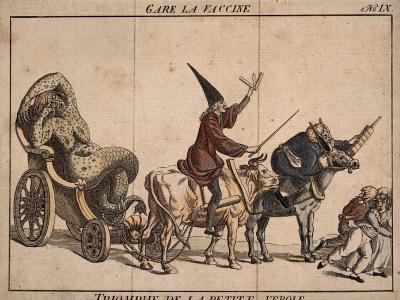
IASH is proud to launch Vaccine Voyages, an exhibition created for the 2022 Edinburgh Science Festival. Vaccine Voyages looks back at the first global vaccination campaign, and invites you to reflect on the legacies of colonial medicine today. How does colonialism echo into the lived experience of disease and its prevention globally? Can vaccines help reimagine future worlds, rather than remake colonial pasts?
In 1803, funded by King Carlos IV of Spain, a doctor used orphaned and enslaved children to incubate the vaccine for smallpox in their own bodies. They then travelled through the Caribbean, Mexico, the Philippines, China, and back to Europe, inoculating thousands along the way. Our outdoor exhibition explores that voyage, literally the first global health mission, showing how a miraculous new technology was rooted in exploitation, colonialism and the horrific Atlantic slave trade.
The vaccines themselves were very different from today's quick jabs: lymphatic fluid was harvested from pustules that was then inserted directly into other people's arms. Using the human body to transport and incubate the cowpox virus allowed Western medicine to circle the globe under the auspices of humanitarianism. With the vaccine, colonial officials hoped to eradicate both disease and evidence of the violence of slavery.
Vaccine Voyages follows the story of the enslaved children who incubated and reproduced the vaccine, putting them back at the heart of this medical revolution. The exhibition can be found on North Meadow Walk, in front of IASH, and runs from Saturday 9 to Sunday 24 April 2022. The exhibition is based on research by current CHCI-ACLS Fellow Dr Farren Yero.
You can also download a digital PDF of Vaccine Voyages with expanded content and additional information. Click here for the mobile version (18MB). Click here for the high-resolution version (44MB).
Text and research by Dr Farren Yero (www.farreneyero.com)
Illustrations by Jacqueline Briggs (www.jacquelinebriggsillustration.com)
Design by Bill Walsh (www.wingdesign.co.uk)
Production by the Institute for Advanced Studies in the Humanities in collaboration with Edinburgh Infectious Diseases
All text and images copyright the University of Edinburgh.
We would like to acknowledge the generous support of the University of Edinburgh’s College of Arts, Humanities and Social Sciences.
